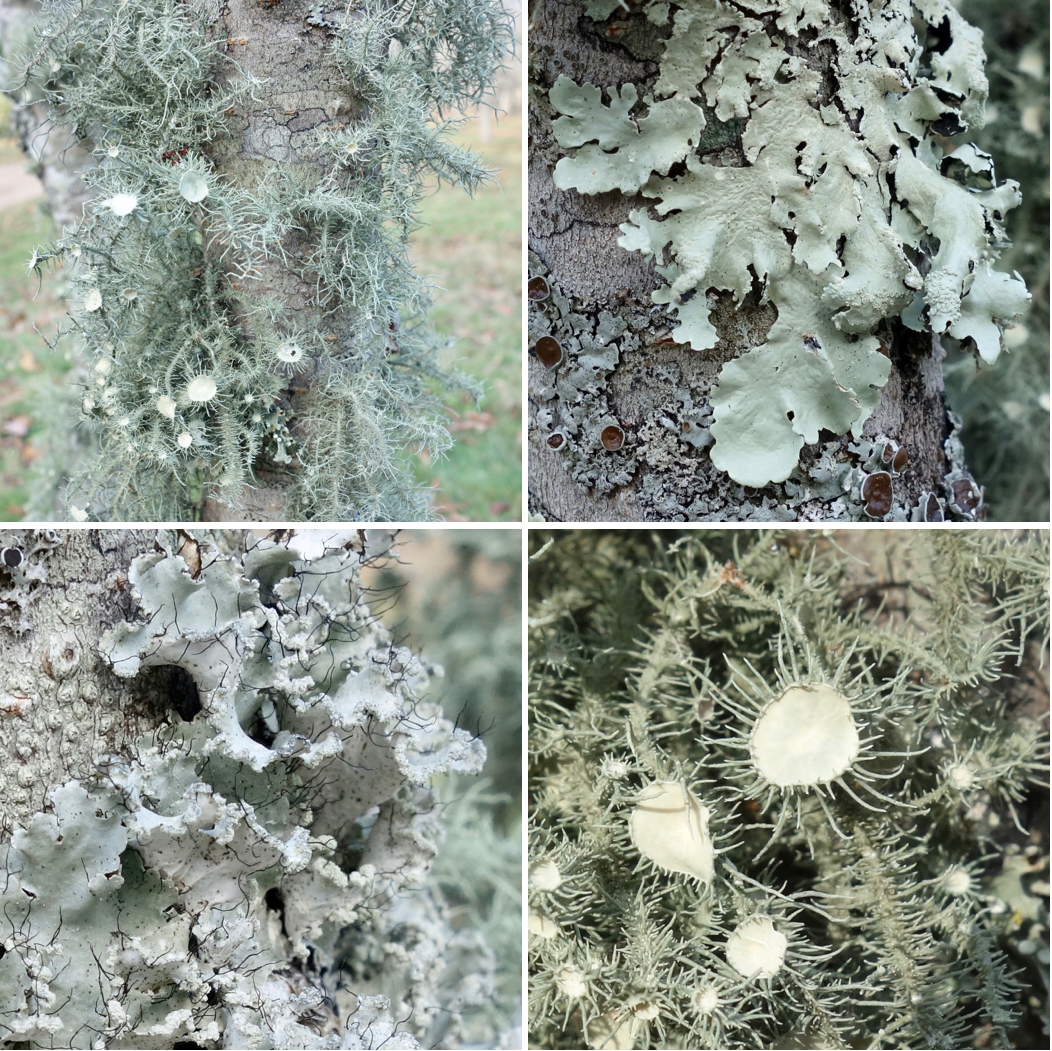Last Saturday, I bumped into a red buckeye (Aesculus pavia; 101-2007*B) at the Arnold Arboretum, or perhaps it would be more accurate to say the form of a red buckeye, since the tree was enshrouded by a magnificent collection of diverse lichens. I am no lichenologist, so I turned to some fantastic mycological and lichenological colleagues and experts at the University of Connecticut and Harvard University, who guided me through this magical forest (upper left) of epiphytic lichens.

Upper right is the “common greenshield lichen” (Flavoparmelia caperata), which, as its moniker suggests, is common. Tucked into the photograph is also a species of Lecanora (small black discs at lower left and bottom of this image). Lower left is a species of eyelash lichen (Parmotrema sp.), aptly named for the black hair-like structures along its margins. The most exciting find (lower right) however, was a species of Usnea, aka old man’s beard. These lichens disappeared from Boston as a result of pollution, but are beginning to show up again. Just two years ago, lichenologists reported the first sighting of Usnea in New York City in nearly 200 years! Good news that New York, Boston, and other cities are recovering some of their previous biodiversity after the devastations of air and other forms of pollution in the nineteenth and twentieth centuries. As Arboretum taxonomist and curator Dick Weaver wrote in Arnoldia in 1975, “Lichens are decidedly rare in Boston.”
So, why should this one tree among many at the Arnold host so many diverse lichens? I really can’t say for certain. But, trees regularly shed bark and it would appear that this individual is perhaps not so good at bark exfoliation.
In any case, either come for the trees and stay for the lichens, or if you prefer, come for the lichens and stay for the trees at the world’s most wonderful arboretum and urban oasis of biodiversity.
If you crave more Arnold Arboretum plant images, follow my Instagram account: @nedfriedman.
(Special thanks to Bernard Goffinet, Zach Muscavitch, and Don Pfister.)